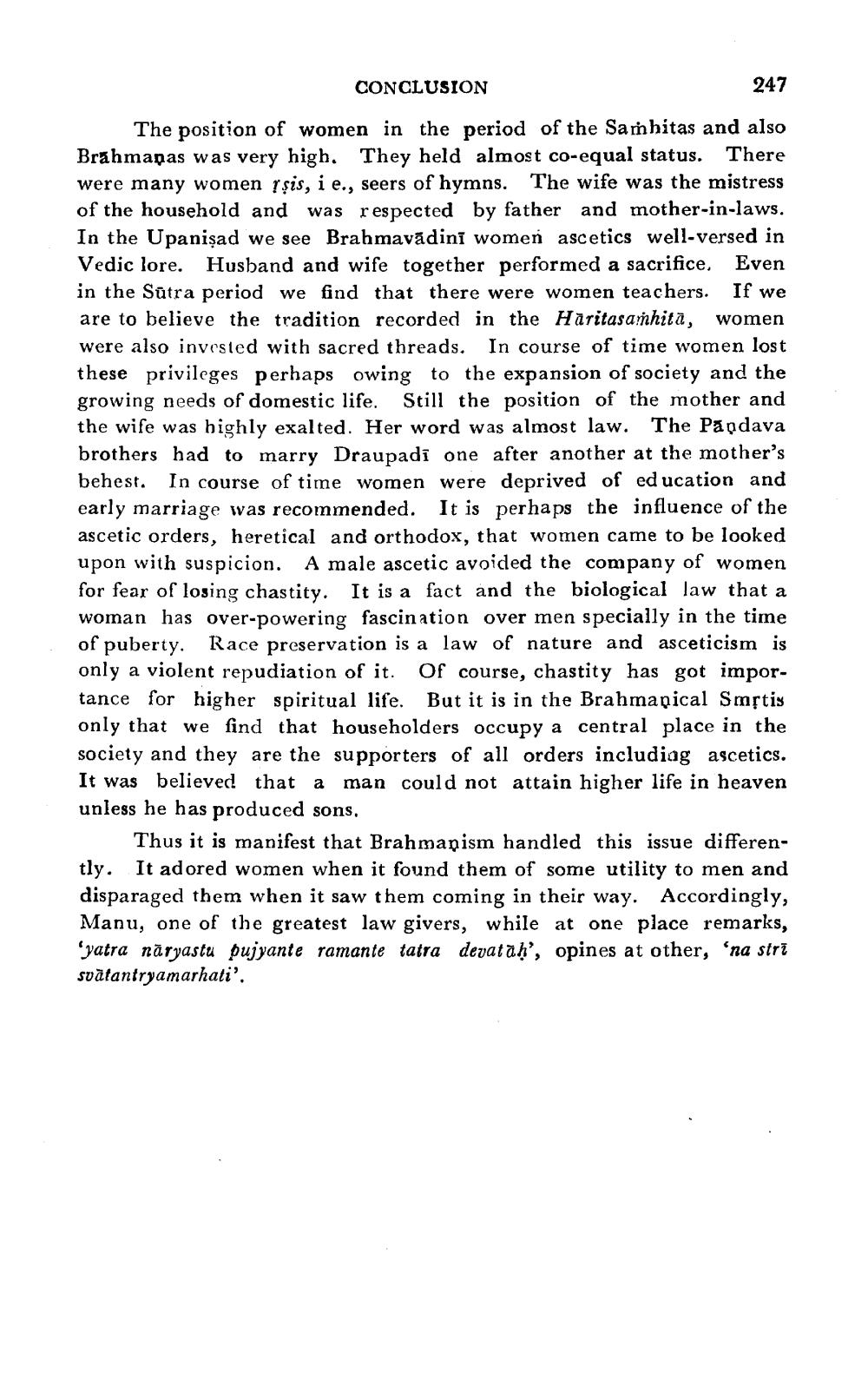________________
CONCLUSION
247
The position of women in the period of the Samhitas and also Brahmanas was very high. They held almost co-equal status. There were many women rşis, i e., seers of hymns. The wife was the mistress of the household and was respected by father and mother-in-laws. In the Upanisad we see Brahmavādinī women ascetics well-versed in Vedic lore. Husband and wife together performed a sacrifice. Even in the Sutra period we find that there were women teachers. If we are to believe the tradition recorded in the Haritasaṁhità, women were also invested with sacred threads. In course of time women lost these privileges perhaps owing to the expansion of society and the growing needs of domestic life. Still the position of the mother and the wife was highly exalted. Her word was almost law. The Pandava brothers had to marry Draupadi one after another at the mother's behest. In course of time women were deprived of education and early marriage was recommended. It is perhaps the influence of the ascetic orders, heretical and orthodox, that women came to be looked upon with suspicion. A male ascetic avoided the company of women for fear of losing chastity. It is a fact and the biological law that a woman has over-powering fascination over men specially in the time of puberty. Race preservation is a law of nature and asceticism is only a violent repudiation of it. Of course, chastity has got importance for higher spiritual life. But it is in the Brahmapical Smrtis only that we find that householders occupy a central place in the society and they are the supporters of all orders including ascetics. It was believed that a man could not attain higher life in heaven unless he has produced sons.
Thus it is manifest that Brahmanism handled this issue differently. It adored women when it found them of some utility to men and disparaged them when it saw them coming in their way. Accordingly, Manu, one of the greatest law givers, while at one place remarks, 'yatra nāryastu pujyante ramante tatra devataḥ', opines at other, ‘na strī svatantryamarhati'.




